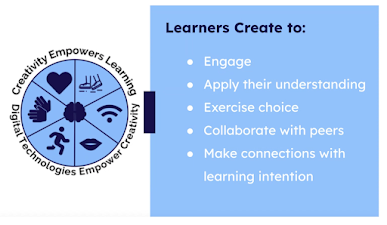This blog aims to record and reflect on ways I demonstrate knowledge and application of Our Code, Our Standards as outlined by the New Zealand Education Council. This blog was created in 2018 and the intention is for it to continue to be used in years to follow.
Thursday, 21 November 2024
RPI #9 - Sharing
Thursday, 7 November 2024
RPI #8 Creating
Reading Practice Intensive
Thinking - Started introducing the levels of thinking. Started of being a shambles but once I unpacked ‘Literal’, they got that. We started Interpretative and kids could relate to inference work. Evaluative is our next level of thinking to work on.
Used Tokelau Language Week for a context and to create a text set. That worked quite well.
Figurative Language - I used my writing lessons to touch on figurative language.
Position of Resistance - Used the text Dive to discuss and share ideas about the provocation about separation and divorce.
Vocabulary - I’m finding this to be an area of need so have been getting kids to do some unpacking of vocabulary.
Learner reflections about our discussion as critical analysts was done verbally and we are nearly at the written stage.
I found it quite tricky to cover everything as things took much longer than I anticipated.
I liked how another participant gets her kids to record themselves reading regularly and they have a Google Slide with the text and their recording with comprehension questions.
Dorothy Burt - Create as a response to Reading (& Writing) Engaging and Empowering Learning
Create opportunities won't happen if we don't intentional design and include these.
Professor Jonathan Neeland, Creative Fellow, Warwick University
Stencils: Go to google stencils and search for what you want. You can create a Google Drawing as a template and use a stencil of something significant from the text, a T-Shirt, umbrella and playing cards. The create a creature/character card game design. This would be really good for character work, particularly as we look at our Māori gods later in the term. These tasks would fit into a response to text activity.
To Do: Add a create response to a response to text. We will share these examples with ākonga responses.
I am thinking about doing texts around Māori healing and using the texts Rongoā and Tohunga.
Routine Opportunities: CHOICE
Tools / Task / Product
When choosing tools, make sure they aren't overused and allow proficiency and creativity.
I have started using Book creator, but the first session we had wasn't great because what was created was not good quality. I haven't used Pixton or Storyboard That. Storyboard That has some good cultural representation.
Quizzes:
A One-Shot Film
Thursday, 17 October 2024
RPI Day 7: Thinking
THINKING
I feel like I've dropped a few balls since the last session as I haven't done any mahi since then. I've got some catching up to do.
One thing I am also mindful of is making sure I maintain what I have implemented and also think on how I can share this with other staff, particularly with my new team next year.
Dorothy Burt's Kōrero:
Chalk ‘n Talk | Georgie
Introducing higher order thinking to access the deeper meanings in texts. Designing opportunities for building learners’ awareness of thinking, ‘beyond the literal level’.Deep Dive | Amie
Analysing text as a basis for unlocking higher order levels of thinking: “zooming in” and “zooming out”.Explore: Georgie
Extending interpretive thinking to Figurative Language. Making connections between concrete and abstract meanings.Deep Dive: Amie
Critical analysis (Part 1): Perspectives - Key approaches to critically reading & challenging text(s).Skill Builder | Georgie
Teaching synthesisExplore | Amie
Building learners independence through Response to Text:
Opportunities to practice higher order thinking using a ‘levels of thinking’ approach.
We started working on a response to text slide, so I used the text The Dive. Choosing this text was unintentional as I was looking for something based on Fijian Language Week and this one popped up. I have a few learners who have some challenging situations to deal with, so I think this would be quite helpful for them. This topic is also one that could prompt a lot of discussion and each child will be able to talk about their experience and situation.
My next steps:
- Put time into organising my mahi from the last session and update the mahi tracker.
- Have a look at other peoples' mahi for ideas.
- Update my teacher workbook and long term plan for the term.
- Update my group task boards to include vocabulary and literal, interpretive and evaluative thinking questions.

















































